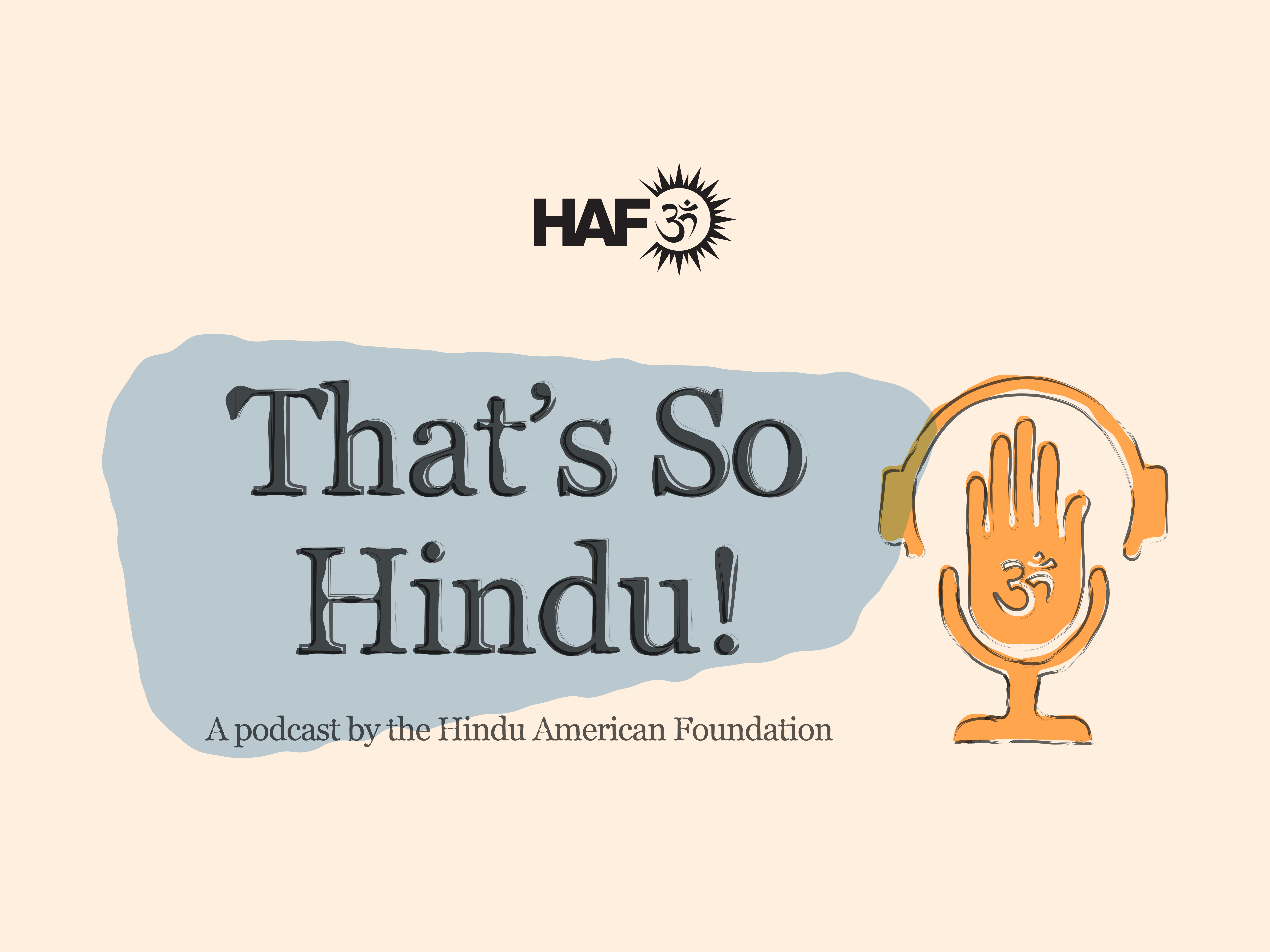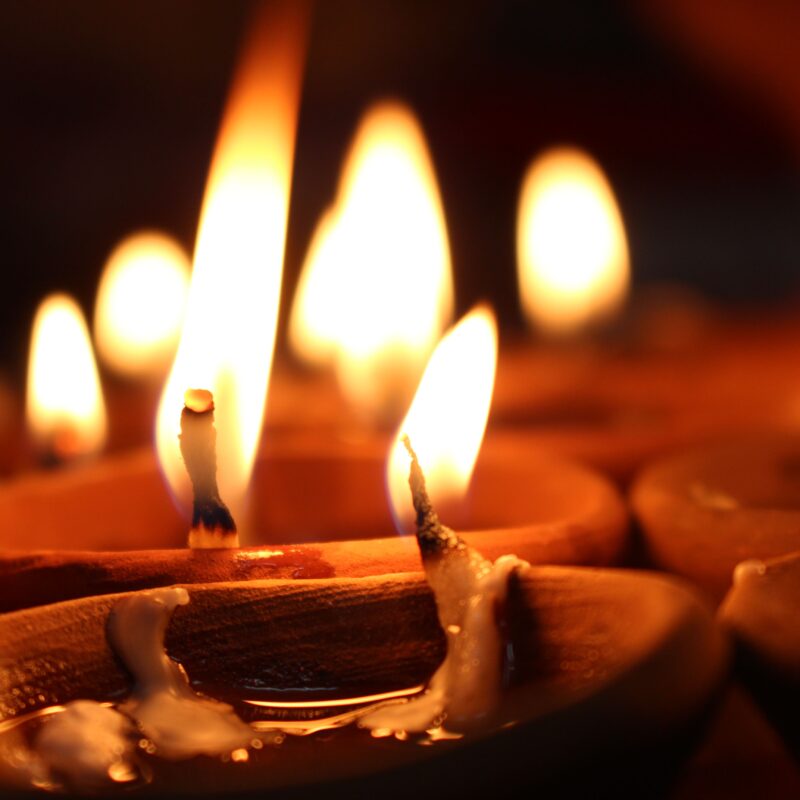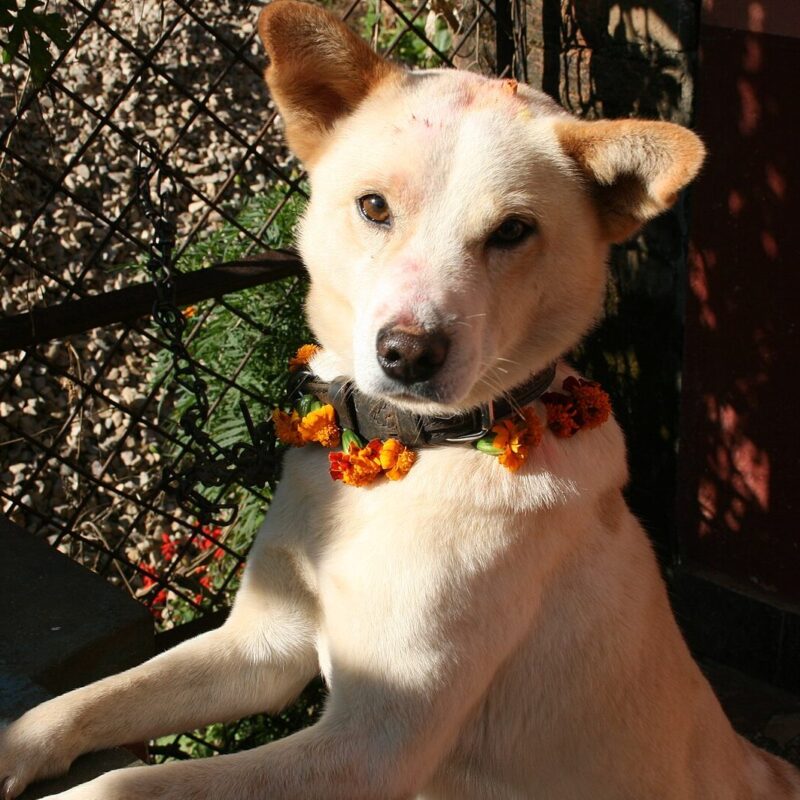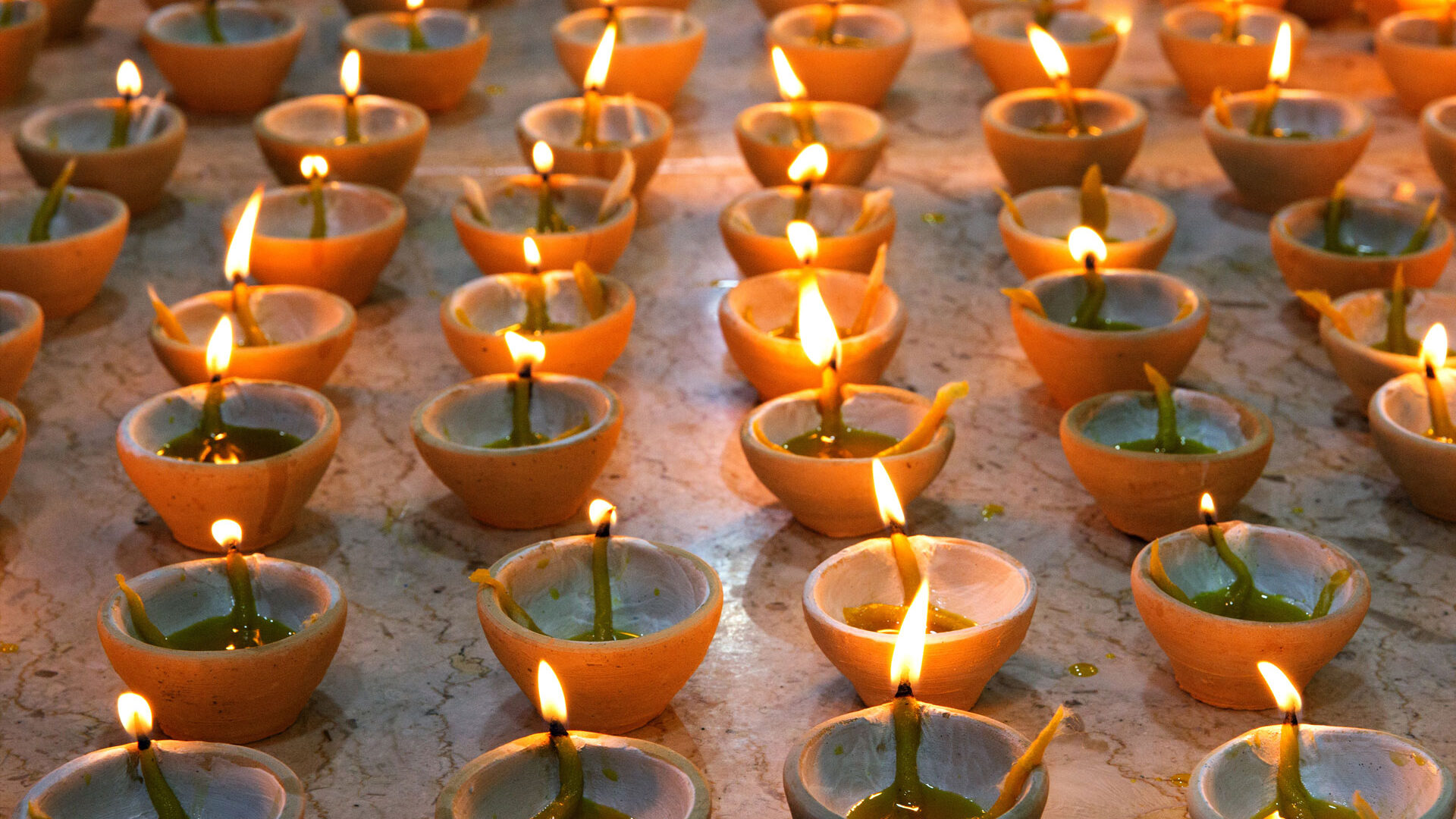
The Hindu tradition is a broad, pluralistic tradition, encompassing a family of teachings and practices.
Its astounding diversity is bound by a set of core ancient and eternal truths that continue to bring meaning to the lives of millions around the globe. Diwali is a beautiful time to remember and renew our commitment to these eternal and universal truths.
The rishis of yore realized that each of us arrive at our respective paths to higher truths and purpose in different and unique ways. And so, the Hindu tradition has flourished on a bedrock of freedom, exploration, and diversity.
The ancients also recognized that we humans share in a natural longing for four aims in life.
- A sense of goodness, balance, and universal well-being or Dharma.
- A sense of security, material prosperity or Artha
- A sense of mental and physical happiness or Kāma
- And most profoundly, a sense of wholeness, which comes through spiritual freedom and our endeavors towards discovering Moksha.
Grounding these aims is one central principle that we must never forget and that is the presence of the divine being equally present in all living beings. As a result of this shared divine presence, our traditions assert that we have a moral and ethical obligation to ensure that our thoughts, words, and actions – our karma – uphold values like truth, non-injury, compassion, equanimity, generosity, and equal regard in order to honor that divine in all.
At its essence, Diwali commemorates the victory of good over evil; of our inner light over inner darkness; of every decision point where we choose to do the right thing.
Just as Sri Rāma and Sri Krishna were victorious over the dark reigns of Rāvana and Narkāsura, we too can choose light over darkness in every moment, in the way we treat ourselves, our work and responsibilities, and one another.
Diwali falls on the darkest night, but the five day celebration often begins two to three days before and can last several days after.
The first day, Dhanteras — dhan means wealth and teras or 13 signifies the day it falls on — usually involves some tradition of cleaning our homes, decorating our thresholds with colorful rangoli and kolam, and performing Lakshmi pujā.
But wealth isn’t always measured in things. It’s also about physical and mental health and well-being, which is especially important this year.
We are in the midst of a pandemic. Our ability to get out and about for some physical exercise may be severely limited. We may feel stress from fear of all the uncertainty. If you feel like you just don’t have time or are in a rut, commit to taking fifteen minutes to move around. Do a couple of Surya namaskāras, march in place, or dance like no ones watching. If you’re already a fitness pro, good for you! Take another fifteen to just sit and be. Focus on your breath, slow down, chant a shlokā for universal well-being. Consider these few minutes an investment in your wealth and resolve to keep it growing.
Kālichaudas marks the second day of this festival — kāli meaning darkness and chaudas meaning 14. This is a day to cleanse the darkness that laziness brings. Laziness results in us breaking our word — be it mental or verbal. Satya, or truth, requires us to keep our promises — not just to others, but to ourselves. May Kālichaudas this year re-energize us to stay true to our thoughts and words and accomplish all that we need to do, and all that we want to do.
Finally comes Diwali — a day that marks the return of Sri Rama, Dharma incarnate, to the Kingdom of Ayodhya. Homes are cleaned and decorated as both the Goddess Lakshmi and Sri Ganesh are welcomed for blessings of prosperity and well-being. It’s also a day when doors are thrown open to friends, family, and unexpected guests, which are expected! Atithi Devo Bhavah!
But this year will be different. I know based on Navaratri. I dressed up, did garbā one night in my kitchen by myself and on another with friends and family while on Zoom, and still managed to have a blast. Moral of the story: physical distancing doesn’t mean we cannot celebrate and connect with loved ones.
This Diwali, consider calling — not just texting, What’s Apping, or emailing — actually calling friends and family to wish them a Happy Diwali, especially those who you know might be lonely or who you haven’t spoken to in ages. Demonstrate your love and care for them with a gift that is increasingly rare in our age — time.
The fourth day of Diwali brings Govardhan pujā for many. This day commemorates Lord Krishna lifting Govardhan Hill. Many celebrate this day with Annakut, building a mountain of sweets symbolizing Govardhan Hill, that is then distributed as prasād. For others, it is Bali Pratipadā, the day on which Vishnu, in the form of Vāmana, defeated King Bali. In Gujarat and parts of Rajasthan, this day also marks the new year, so if you hail from there, Nūtan varshābhinandan and Nav varshki shubhakāmnā. Regardless of which legend one is commemorating, it is a time to be grateful for the blessing of abundance in our lives and to share with others.
The last day is Bhaiduj — a day in which brothers and sisters, including cousins and friends who are like family, meet to express their love and affection for each other. The idea of brotherhood and sisterhood is much larger than just who we know and like though. The Hindu tradition says, Vasudhaiva Kutumbakam — the world is one family — that includes not just the folks we like, but the folks we may not; it includes animals, the plant kingdom, and planet earth.
Amongst the silver linings that this pandemic has brought out, it has been a very real reminder of this eternal truth.
What we do — wear a mask, keep physical distance, give focused attention to our work, call a lonely friend, send a check to the local food shelter — impacts others. How we consume impacts others and what others consume impacts us — not just today, but for years to come. My well-being is directly tied to our well-being. We are in this together and will get through it together. So think of others first and step gently upon Mother Earth.
COVID-19 may keep us from gathering physically, but it can’t keep us from celebrating in spirit all the light that this season offers.
I wish you much health and happiness and the positive life lessons Diwali brings.
In the Service of Dharma,
Suhag
As a small gift from me to you, I’m re-sharing a poem I wrote several years ago telling the story of Diwali.
A time long ago, in a land far away
There lived King Dasharatha who hunted night and day
Near a river in the forest, a doe did he hear?
A fatal shot would cost him his most near and dear
The king’s arrow brought the end to a faithful son
Two blind parents cursed the king for what he had done
“So too shall you lose the one you love the most”
The king turned back home, prepared for this bitter dose
Many years later, the king ruled fair and just
Three queens at his side, now heirs were a must
Special prayers brought the king four royal sons
All very good, but extra special was just one
Rāma, the king’s eldest, held promise to be the best
Favored he was, just a little above the rest
Noble and strong, all four princes grew
But then a seed of doubt was planted by a scheming shrew
Poisoning a queen’s mind, she said, “Your son should get the throne”
“Tell the King, not Rāma, but Bharat must rise alone”
“Oh Queen, you saved his life once, the King granted you a boon”
“Tell the King to banish Rāma and not a minute too soon”
“Fourteen years Rāma must go and Bharat should rule the land”
“And with Rāma out of the way, the power will be in our hands”
To the queen’s quarters, the King was called
And by what she demanded, he indeed was appalled
But a promise is a promise, a curse a curse
His dearest Rama to be banished? This shortly brought his hearse
“We too shall join,” said Rāma’s bride and his brother
Shedding their silks and gold, they left with nothing but one another
For the next 13 years, these three nobles lived like sages
Until one day a demon came and changed were history’s pages
Rāvana had heard Rāma’s wife Sitā was beautiful and fair
He decided he must have her to live in his lair
Sitā, pure and loyal, her husband she’d never betray
So Rāvana conned her to leave in the most devious way
Sitā kicked and screamed as Rāvana dragged her to his kingdom
Stashed away in a garden, demonesses blocked her every freedom
Meanwhile Rāma and Lakshman searched high and low,
Asking every man and beast, worried with every “no”
Then along came a friend, strong and devoted
“My name is Hanumān. Your divinity is duly noted”
So many months passed; several schemes were hatched
Then a bridge of floating rocks and a monkey army dispatched
A heavy battle ensued, many lives were sadly lost
Good slaying evil, though high was the final cost
Rāma soon slayed Rāvana and rescued his beloved wife
Onward to Ayodhya, to restart their royal life
The residents rejoiced and lined up all the streets
With rows of earthen lamps, distributing snacks and sweets
Lord Rāma, Sitā, and Lakshman, their return a time of elation
And so started Diwali, through the ages, a brightly lit celebration

Learn More
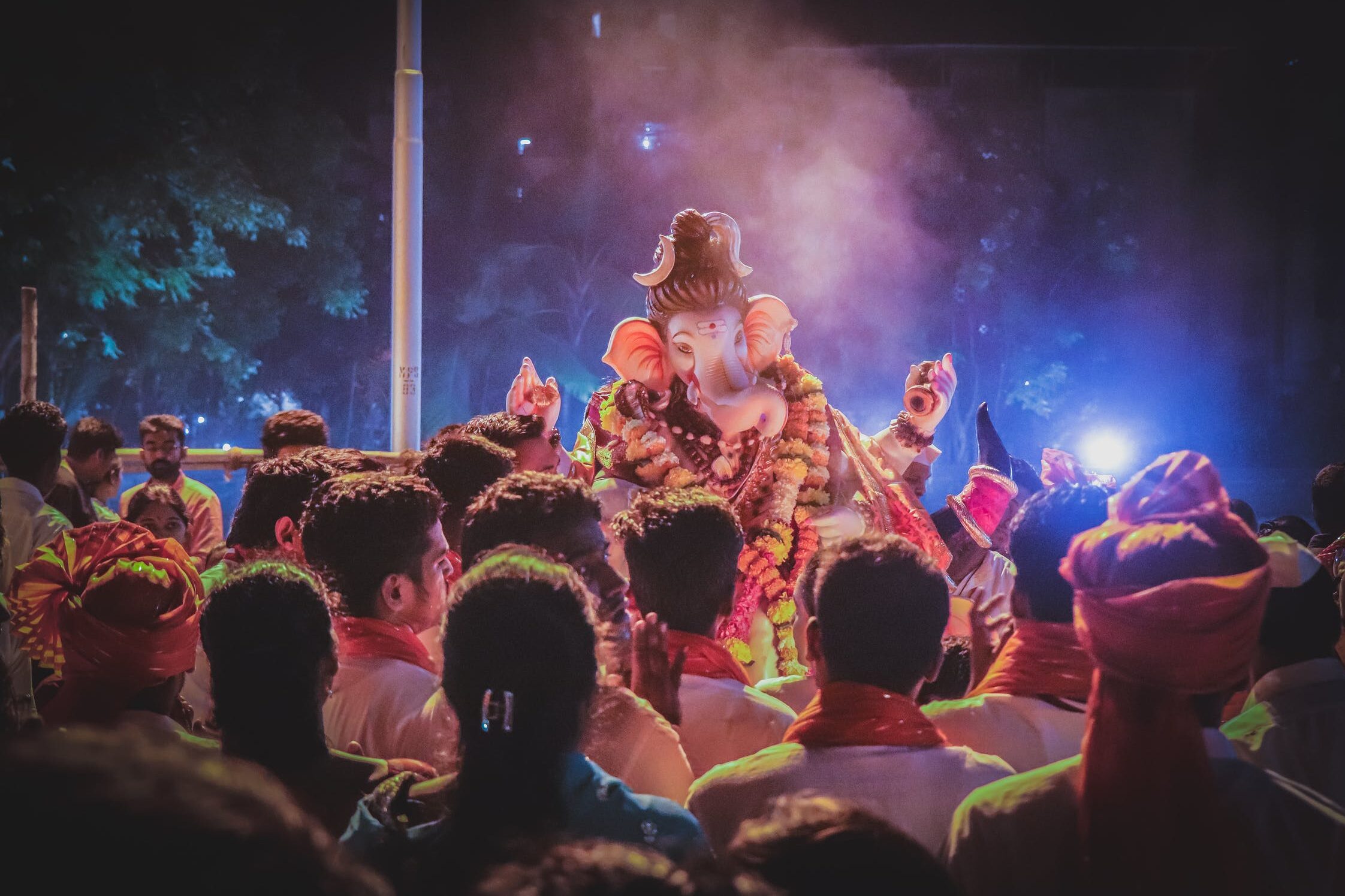
How is Hinduism’s teaching about Oneness relevant in the modern world? Find out from some of the Hindu tradition’s most widely respected spiritual teachers HERE.
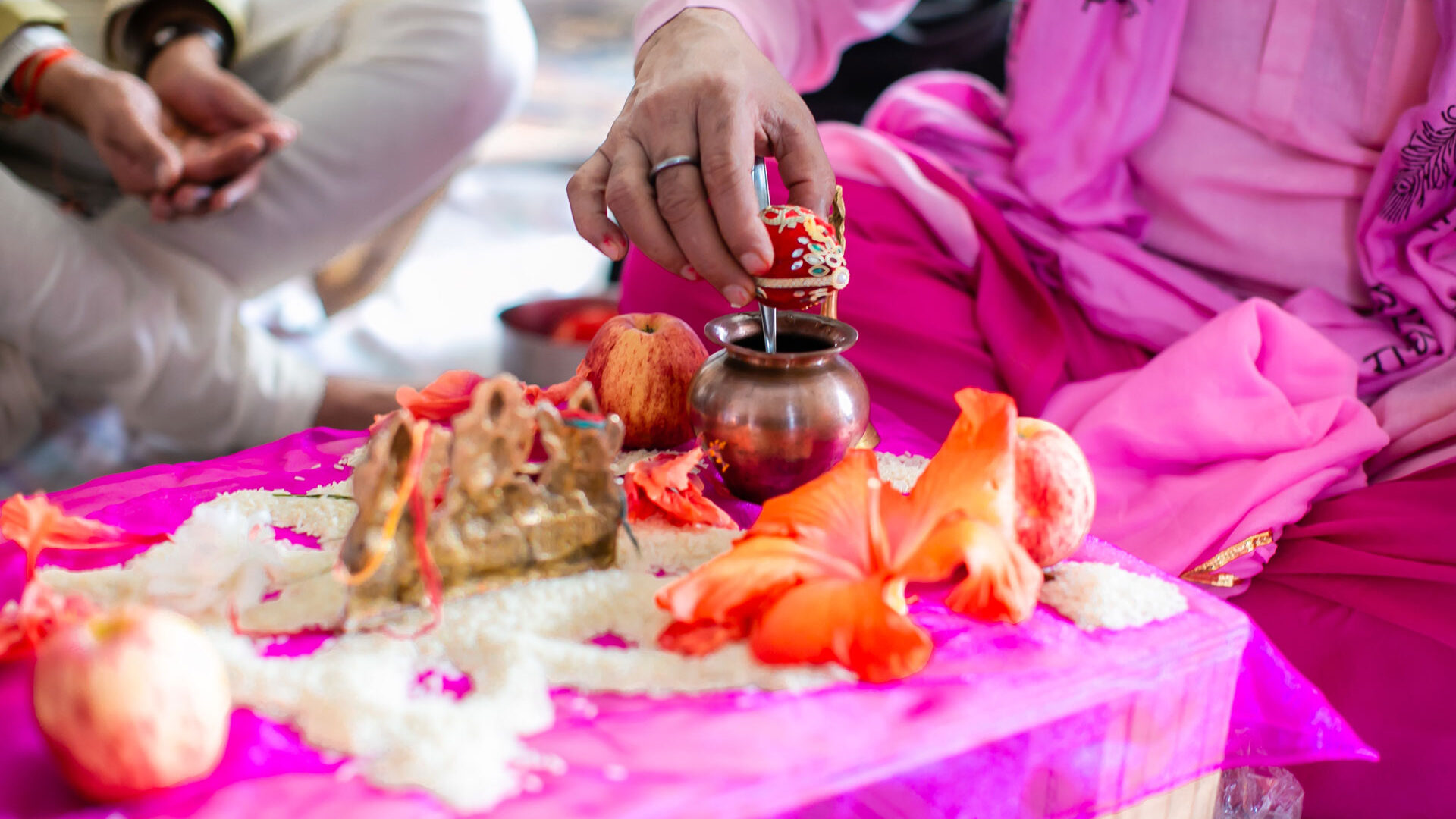
Want to make this year’s Diwali puja more meaningful? Share the significance of every step with your family. Check out HAF’s 16 Step Puja Guide.
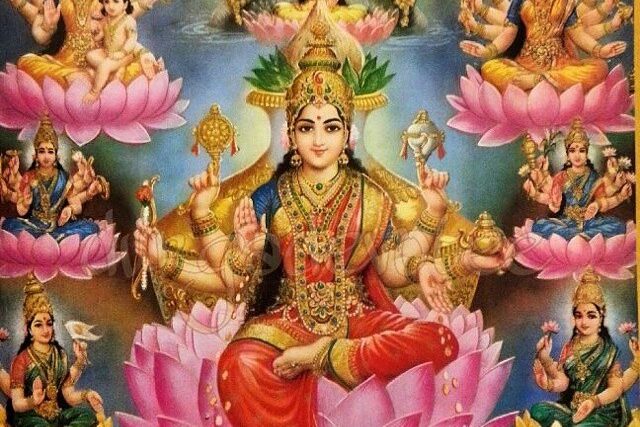
Why Lakshmi Puja? Learn about the eight forms of Lakshmi HERE.


